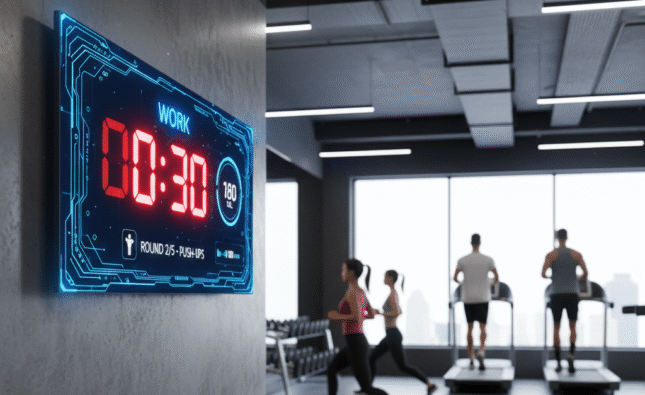In today’s fast-evolving business landscape, human resources (HR) is no longer just about managing payroll and benefits. HR has become a strategic function that plays a critical role in shaping company culture, driving employee engagement, and supporting business growth. But what can businesses learn by looking at HR practices across different industries? Surprisingly, a lot. By examining how various sectors approach HR, companies can uncover valuable insights that can be adapted to fit their unique needs and goals.
Embracing Flexibility: Lessons from Tech and Creative Industries
The tech and creative industries have long been at the forefront of workplace innovation, especially when it comes to flexibility. In these sectors, where the competition for top talent is fierce, offering flexible work arrangements has become a key differentiator. Remote work, flexible hours, and even four-day workweeks are common practices designed to attract and retain the best employees. But it’s not just about attracting talent—it’s about fostering a work environment where creativity and productivity can thrive.
Other industries can learn from this by rethinking their approach to work-life balance. Flexibility doesn’t just benefit employees; it can also lead to higher levels of engagement, reduced turnover, and a more agile workforce. Whether it’s allowing employees to work from home a few days a week or offering flexible start times, these small changes can have a big impact on overall job satisfaction.
Building a Strong Culture: Insights from the Healthcare and Hospitality Sectors
The healthcare and hospitality industries have something in common: they both rely heavily on a strong organizational culture to succeed. In healthcare, a culture of care and empathy isn’t just a nice-to-have—it’s essential for patient outcomes. Similarly, in hospitality, creating a welcoming and service-oriented atmosphere is key to delivering exceptional guest experiences. Both industries understand that culture isn’t something that happens by accident; it’s deliberately cultivated through leadership, communication, and shared values.
Businesses in other sectors can take a page from these industries by focusing on culture as a core component of their HR strategy. This means clearly defining your company’s values, communicating them consistently, and ensuring that they are reflected in everything from hiring practices to employee recognition programs. A strong culture not only improves employee morale but also creates a sense of purpose that can drive business success.
Investing in Continuous Learning: Lessons from Financial Services and Manufacturing
The financial services and manufacturing industries may seem worlds apart, but they share a common focus on continuous learning and development. In financial services, where regulations and market conditions are constantly changing, ongoing training is crucial to staying competitive. Similarly, in manufacturing, the push towards automation and advanced technologies means that employees must continuously update their skills to keep up with industry demands.
For businesses in other sectors, the takeaway is clear: investing in employee development isn’t just a cost—it’s a critical investment in the future. Offering opportunities for continuous learning, whether through formal training programs, mentorship, or online courses, can help employees stay ahead of industry trends and bring new ideas to the table. This not only enhances individual performance but also contributes to the overall growth and innovation of the company.
Adapting Compensation Strategies: Insights from Retail and Consulting
Compensation is a tricky subject, but it’s one that the retail and consulting industries have managed to navigate with some unique approaches. In retail, where margins can be tight, companies often rely on performance-based incentives to motivate employees. Meanwhile, the consulting industry has embraced reference based pricing as a way to align compensation with market conditions and client expectations. This approach not only ensures competitive pay but also creates a clear link between performance and reward.
For other businesses, the lesson here is the importance of flexibility in compensation strategies. One-size-fits-all doesn’t work in today’s diverse workforce. Instead, companies should consider a mix of base salary, performance incentives, and benefits tailored to the needs of different employee groups. This can help attract and retain top talent while also ensuring that compensation remains aligned with business goals.
Leveraging Technology: Insights from E-commerce and Logistics
E-commerce and logistics companies have long been at the cutting edge of using technology to streamline HR processes. From AI-powered recruitment tools to sophisticated workforce management systems, these industries have embraced technology to improve efficiency and make data-driven decisions. In e-commerce, for example, technology is used to optimize staffing levels in response to fluctuating demand, while in logistics, advanced software helps manage complex supply chains and coordinate large, distributed teams.
Other industries can benefit from adopting similar technologies to enhance their HR functions. Whether it’s using data analytics to identify trends in employee engagement or implementing a new HR platform to simplify administrative tasks, technology can be a powerful tool for driving efficiency and improving decision-making. The key is to choose solutions that align with your business needs and to ensure that they are integrated seamlessly into your existing processes.
The Future of HR: Cross-Industry Collaboration
As businesses continue to navigate the challenges of a rapidly changing world, cross-industry collaboration will become increasingly important. By learning from the successes and challenges of other sectors, companies can adopt best practices that are relevant to their own unique circumstances. The future of HR is one where flexibility, culture, continuous learning, compensation, and technology come together to create workplaces that are not only efficient but also inclusive, engaging, and innovative.
So, what can your business take from these cross-industry HR insights? Whether it’s embracing flexibility, investing in employee development, or leveraging technology, the possibilities are endless. The key is to remain open to new ideas and to continuously seek out ways to improve your HR strategies and outcomes. After all, in today’s competitive landscape, staying ahead means always being ready to learn and adapt.













